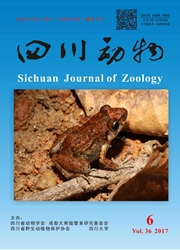

 中文摘要:
中文摘要:
脊椎动物通过免疫系统抵御外界不良环境条件的侵袭。如何发展出简单实用、稳定性好且易于操作的野外免疫学技术,并将其应用于动物生态学研究,是新兴学科——生态免疫学要解决的主要问题之一。本文以脊椎动物为例,结合生态免疫学的研究进展,介绍了一些应用较广的免疫学测定指标,概述了这些测定指标在野外研究中的优缺点,强调了免疫学指标体系间的复杂关系,建议在脊椎动物生态学研究中使用多层次的免疫学指标体系来度量动物体免疫功能的变化,在生态学和生活史进化的背景下理解免疫功能与其他生理活动或免疫系统内部的权衡关系,提出受所研究目标动物的物种特异性和野外操作条件的限制,多种免疫学参数的有效性尚需确证。
 英文摘要:
英文摘要:
Vertebrates defend against the disadvantageous environment by activating immune systems. The focus of ecoim- munology is to explore simple, stable and convenient field immunological techniques and apply it in animal ecology research. Based on vertebrates, this paper introduced some widely used immunological indices in ecoimmunology. The advantages and disadvantages of each index in the field research were overviewed as well as the complex relationships among these indices. It suggested that multiple levels of immunological parameters should be used in ecology research of vertebrates by measuring the changes of the immunity. The trade-offs between immunity and other physiological activities, as well as the immune system should be understood in the context of ecology and life history evolution. Moreover, the efficiency of immunological indices needed to be proved due to the limitations of specificity of the target animal and field operational conditions.
 同期刊论文项目
同期刊论文项目
 同项目期刊论文
同项目期刊论文
 期刊信息
期刊信息
